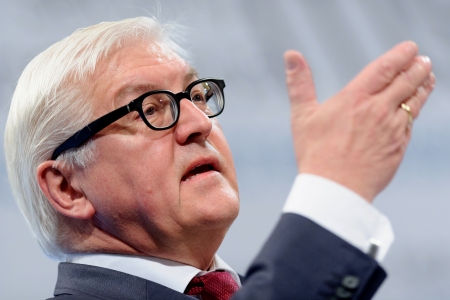With the collapse of coalition talks, German has entered unchartered territory and many fear weeks if not months of political uncertainty set to cost jobs, give investors cold feet and undermine faith in Europe’s leading economy and in Berlin’s ability to shape the post-Brexit European Union. People are worried and they should be.
A fraying Europe – with Brexit, Catalaxit, challenges to the rule of law in Poland, corporate censorship in the form of hate speech laws for social media, a disingenuous Russia and a migration crisis that will be with us for decades – has just received another loud rip in its fabric.
There is a way, though, to save Germany and Europe from further damage
The wise authors of the nation’s 1949 Constitution, having lived through the associated horrors of weak institutions during the Weimar Republic anticipated exactly this moment. They’ve provided us with the excellent remedies within the guidelines of Article 63.

How Article 63 Works
With the collapse of talks, following Article 63 means the Federal President, Frank-Walter Steinmeier steps in. The political initiative and the power to decide who is chancellor passes to the Federal President. Frank Walter Steinmeier. He’s already indicated he understands what is at stake.
Step One: The Bundestag Vote for Absolute Majority
„The Chancellor is elected by the Bundestag in accordance with Article 63. The Federal President is allowed to propose a candidate only in the first round of voting. Here the authors of the Basic Law learned a clear lesson from the Weimar Republic where the President was able to appoint and dismiss the Chancellor at will. If there is no absolute majority in the first round of voting the Bundestag has fourteen days time in which it can elect a Chancellor in as many rounds of voting as desired. Here again, an absolute majority is needed to win (Article 63, 3, Basic Law). „
Step Two: The Bundestag Vote for a Simple Majority
„If this second phase fails to produce the desired result the parliament must vote without delay in a third phase. If the candidate for Chancellor receives only a relative majority the President is required to step in. He must either appoint the candidate for Chancellor who received the largest number of votes or he must dissolve the Bundestag (Article 63, 4, Basic Law).In the 18 times a Chancellor has been elected since 1949 all the heads of government have received the required a majority in the first round of voting. However the candidate elected is not officially Chancellor until he has received a certificate of appointment from the Federal President (Article 63, 2, Basic Law)
Step Three: The Constructive Vote of No-confidence
A Chancellor’s term in office normally ends when the newly elected Bundestag convenes for its first meeting (Article 69, Basic Law). However, the parliament can express a lack of confidence in the head of government by electing a successor with an absolute majority (Article 67, Basic Law). Helmut Kohl is the only Chancellor in the history of the Federal Republic to have been elected in this way. He succeeded Helmut Schmidt as a result of a constructive vote of no confidence in 1982. At the request of the Federal President, a deposed Chancellor is required to continue to conduct the affairs of office until the appointment of his successor (Article 69, Basic Law).
The German President Should Act Swiftly, Today Would be Good
German President Frank Walter Steinmeier should act swiftly and begin the parliamentary process.
Now that the FDP is out, we can be spared the spectacle of similarly doomed negotiations. The FDP, Greens and the conservative CDU/CSU have demonstrated they can’t reach even the show of a workable compromise in the following areas:
1.) Migration and the prospect of bringing over hundreds of thousands of family dependents to join the hundreds of thousands of refugee already here. Non-starter.
2.) Fossil Fuels. Ending coal mining and coal-fired power plants is a no-go zone that was barely touched on.
3.) Tax Reform Never easy even when partners are ideologically close let alone at dagger’s edge.

If all else fails : New Elections
With this in mind, and should the Bundestag vote fail, the Federal President then calls new elections. That’s not the end of the world. It will most likely, however, be the political end of the Angela Merkel. Under her leadership, her Christian Democrats have lost most of their conservative contours, especially regarding migration, open borders and a cap on asylum seekers and migrants. These issues, and whether refugees already in the country will be allowed to bring over their families from places like Iraq, Syria, and Afghanistan, will be at the heart of the next election campaign. The party most likely to benefit from the new uncertainty and new elections will be the Alternative for Germany which has made an anti-migrant stand the central plank in its platform.
.

